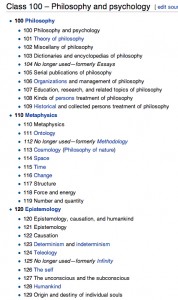 Back to School
Back to School
I suck at trivia. I do OK on Jaywalking segment questions but I’m toast when it comes to Jeopardy or Trivial Pursuit. Facts I knew in 4th grade have completely disappeared from my mind. Thankfully: the Internet; Wikipedia; Reference publications.
The strange thing: I love crossword puzzles. For someone who stinks at recalling trivia, crosswords seem like the exact wrong hobby. But, thankfully: the Internet; Wikipedia; Reference publications! In short, I “cheat.” When I’m stumped, I use Internet apps: Goodreads for authors and novels; Merriam-Webster for definitions and the thesaurus; Wikipedia for lists or history. After that I’ll do a Web search on the subject. If *horrors!* even that doesn’t work, I’ll give up and search on the clue itself (hey, NYTimes crosswords are hard! Don’t judge). My research skills account for something, and anyway I love being reminded of facts I’ve forgotten and learn something new in the process. Doing crosswords helps keep my mind awake.
A friend of mine reminded me of another little skill we all learned in school that has helped me tremendously in my blogging and freelance writing. My friend is a librarian. Can you guess what skill she reminded me of?
Here’s your clue:
1A. Tool to navigate stacks (3 words): _ _ _ _ _ _ _ _ _ _ _ _ _ _ _ _ _ _
Got it?
It’s the Dewey Decimal System!
Stay with me.
Content is King
The Web is filled with loads of advice about content marketing: When to post, how many “Top 5” lists you can safely get away with in a week, optimizing the use of colons in tweets for the most engagement. Talk about trivia! (It’s more like minutiae.)
The gurus say, “Content marketing is simple! It’s writing about your business.” They also say, “Content is king.” (Kings aren’t simple, usually, but I have to admit my sample size is pretty low). How many times have you seen blog posts from brands or writers that seem completely out of left field? Sometimes the subject of the post isn’t remotely related to the services they provide. One day the post is on target, the next it isn’t. We are all guilty of this, especially if we are in a daily-posting position.
You can use the Dewey Decimal System (DDS) to zero in on your subject area and find related topics. “What?” you may be thinking. “Go through those stale index cards at the library?” No. Remember? The Internet. Wikipedia. Reference Publications! Wikipedia has all the info on the DDS we need.
Where we keep the list
Go through the list of categories or “classes” of subjects over at Wikipedia’s DDS entry. Find the main class under which your brand, area of expertise, services or product falls. For example, if we were writing content for the brand Cheerios (cereal), we could find “food” on the list. That’s class 640: Home economics & family living. Now we have a main umbrella category to which our posts should relate. Next, look at the sub-classes under 640. Subjects like household utilities, homecare for the sick and household furnishing all congregate there. Plus, Wikipedia enables links to those particular subject articles.
Readers interested in reading about Cheerios are probably interested in aspects of life that surround the product. Now that I have a well-used list of related subjects, I, as a Cheerios content marketer, can write about Consumer Report’s safety ratings of high chairs or new energy efficient light bulbs. Personally, I’d write a fun post –with lots of photos– about how Cheerios look under different spectrum bulbs on various high chair surfaces. Creative, fun content. Just remember, though, being creative is great as long as your post isn’t crazily off-topic. Use the DDS classification system to keep you on track. Extra Credit: It also helps when you have no clue and are drawing a blank on what to write.

To keep myself on topic for this blog, its classification lives on a sticky note on my laptop. If you’re curious, the class is 300: Social Sciences, Sociology, Anthropology/ 304: Factors affecting social behaviors. I write about how technology affects our lives; technology is the factor that affects how we behave. When I get stumped, I can expand to the 100 class: Philosophy and Psychology, or even 127: the unconscious and the subconscious. Extra Extra Credit: You can adopt any subject in the list, just relate it back to your blog’s main focus.
That wasn’t too painful, was it? Who knew Dewey would do us so good?
Photo Credits: kids in classroom: me (Christine Cavalier). Card catalog: Megan Amaral on Flickr


Comments on this entry are closed.
Love this idea, but I cannot figure out what top level category we belong in. I am managing social media for MeetGreen. We provide sustainable meeting/conference services. Everything from the logistics and planning to the sustainability and carbon footprint of the conference.
First, I’d hit the 500 Sciences Class, to look for subjects related to ecology. Under 500 is 506 Organizations and Management. I’d search for subjects surrounding those two things. You can look at 509 History and Geography and write about different countries’ approaches to the same idea. 570 Life Sciences houses 577 Ecology. Other subjects under 570 talk about organisms, biology, etc. Does MeetGreen know about Legionnaire’s disease? Is there anything in the sustainable meeting space that helps prevent air duct delivered infections? After that I’d move to 600 Technology. Then I’d move on to any social science subject about party planning (but honestly, anyone can plan a party or put on a conference. Not just anybody can certify it Green). Anyway, that’s where I’d start. I’d position MeetGreen as a science company that puts on conferences.